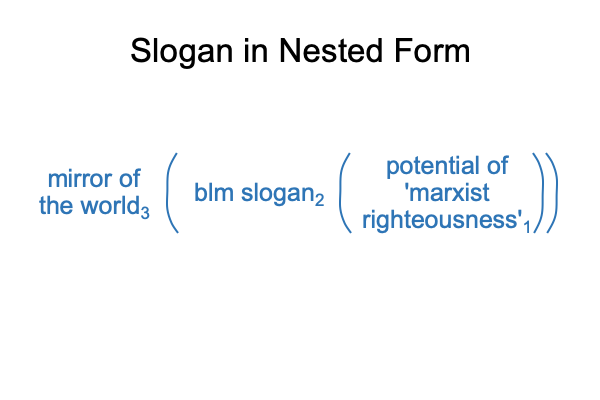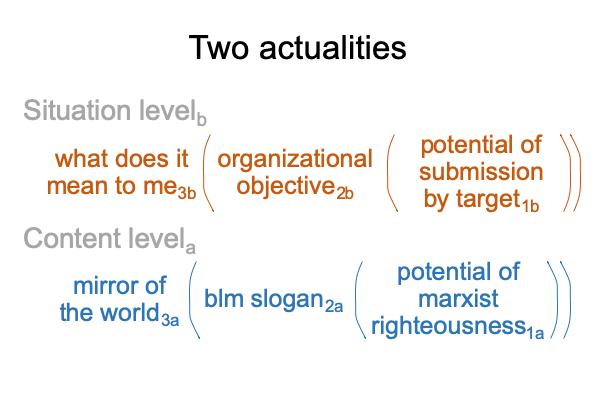Looking at Razie Mah’s (2015) A Primer on Another Infrasovereign Religion (Part 22 of 24)
0148 Can a sovereign3bC keep a lid on two opposing factions3aC and, in the process, continually gain legal authority2bC?
Or, does another dynamic enter into the play?
0149 Enter the classical political philosopher.
Like Socrates, the classical political philosopher is a journalist. Not the propaganda variety of journalist. But, the curious variety.
0150 In this instance, the classical political philosopher asks people their opinions and notes that they fall into two camps. One camp calls members of the second camp, “evil”. The second camp labels members of the first camp, “stupid”.
Why?
The first camp3aC has a rhetorical excuse for the unintended consequences of their organizational objectives2aC. They cover up their policy failures by blaming the second camp, who acknowledges the unintended consequences (of the first camp) and say that they are no good.
The second camp3aC learns to ignore rhetorical abuse1aC (by the first camp) and attempts to protect itself from the material consequences of the first’s implemented policies2aC.
Like Aristotle, the classical political philosopher in an anthropologist, who observes the organizationalB realities associated to each camp3aC, then reaches the conclusion that the opposed parties3aC agree to a single assumption2cC.
Plus, that assumption is wrong.
0151 The assumption is not that the second camp is evil because it says that unintended consequences2aC are bad, and therefore (according to the first camp) the second camp must be responsible for awareness that the unintended consequences are bad.
The assumption is not that the first camp is stupid because it blames the unintended consequences of their policies on the second camp.
The assumption is that… aargh!
Both parties are attacking the poor political philosopher!
0152 Christian humanist, Rene Girard, identifies this dynamic. He studies the literature of many civilizations. Stories portray the dynamics of mimetic contagion over and over again. Mimetic contagion is found in every period of every civilization. Mimetic contagion is a property of our current Lebenswelt.
What is another word for this dynamic?
Scapegoating.
0153 Scapegoating occurs when the reigning order1bC gets into trouble. Scapegoating preserves a unity residing above the reigning order1cC. Scapegoating renews the object that brings us all into relation… er… conflict2cC.
The object that brings all into relation2cC is really an object that brings us all into conflict2cC. That is why the actuality2of the perspectivec level of the societyC tier is occluded. No one can say what it2cC is.
Until God intervenes and reveals the truth.
0154 The Father sends His Son into the world, in order to establish a kingdom, above the sovereign. The Father, Son and Holy Spirit2cC bring all into relation. God does not bring all into conflict. Rather, the Son2cC reveals of the dynamic of mimetic contagion, itself.


